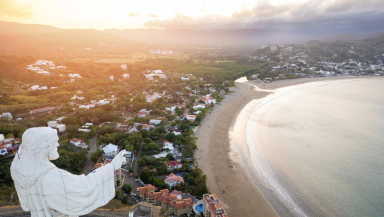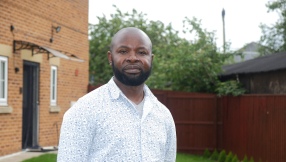
A new policy brief released by Open Doors has exposed as a systematic campaign of repression against Christian communities in Nicaragua.
The publication of the document into the “Targeted Repression of Christians and Church-Affiliated Organizations in Nicaragua” comes as the Ortega-Murillo administration consolidates power through sweeping legal and political reforms.
It details how President Daniel Ortega and his wife, Vice President Rosario Murillo, have used constitutional amendments, police forces, and restrictive laws to clamp down on dissent - particularly targeting religious leaders and organisations.
“Nicaragua is in the midst of a deepening human rights crisis,” the brief states, “with growing limits on freedom of religion or belief, free speech, and the right to dissent.”
The document describes how the targeting of Christian communities intensified after the 2018 anti-government protests, during which Catholic and Protestant leaders supported demonstrators and provided humanitarian aid.
In retaliation, the government responded with a smear campaign in the media against the Catholic Church, labelling church leaders as political enemies. It also arrested outspoken Protestant pastors and began closing down churches.
Since then, places of worship have been heavily surveilled by paramilitary forces and neighbourhood informants affiliated with the ruling Sandinista National Liberation Front (FSLN).
Public religious events like Christmas and Holy Week processions have been banned, while Christian radio stations face closure if deemed critical of the regime.
The brief notes: “In both Catholic and Protestant communities, Christians have faced limits on the duration, location, and frequency of worship services, raids by masked men in the church, and theft or vandalism of religious items.
“Church leaders must speak cautiously, as any remark considered critical of the government can lead to arrest, church closure, or both.
“Many Christians, afraid of being attacked in churches, now either gather in makeshift house churches or read their Bibles alone in private.”
Open Doors also documents the use of newly enacted laws to impose restrictions, like Law 1040 restricting foreign funding and Law 1055 branding critics as “traitors".
A major constitutional amendment passed in January 2025 eliminated the independence of Nicaragua’s judiciary and electoral bodies, and named Ortega and Murillo as joint Co-Presidents, consolidating executive control over all branches of government.
The regime has also created a state-sanctioned “Volunteer Police” force, composed of ex-convicts and ruling party loyalists, to intimidate and suppress opposition from religious communities.
New amendments to the Criminal Procedure Code (Law 1060) now allow authorities to detain individuals for up to 90 days without filing charges.
Numerous Catholic and Protestant leaders have been detained, often without access to legal counsel.
Some have been held with no contact with the outside world, with reports of inhumane treatment, including sexual abuse of female detainees.
Law 1115, passed in 2022, grants the Interior Ministry power to revoke the legal status of NGOs accused of threatening public order.
As a result, long-established Christian entities such as Caritas Nicaragua, the Episcopal Church (established 1612), and the Moravian Church (founded 1847) have been forced to cease operations.
Religious NGOs have seen their assets seized, tax exemptions repealed, and staff threatened.
Open Doors is calling on the Nicaraguan government to take urgent action to address the ongoing violations of religious freedom in the country.
The organisation urges authorities to immediately release all imprisoned faith leaders and to reinstate the legal and financial standing of religious organisations.
It also calls for the return of properties confiscated from churches and faith-based groups, as well as an end to the widespread surveillance of places of worship.
Additionally, Open Doors demands the revocation of laws that restrict freedom of religion and peaceful assembly, and calls on the government to uphold its obligations under international human rights standards.
The report also asks the international community to put pressure the Ortega regime through diplomatic channels.













